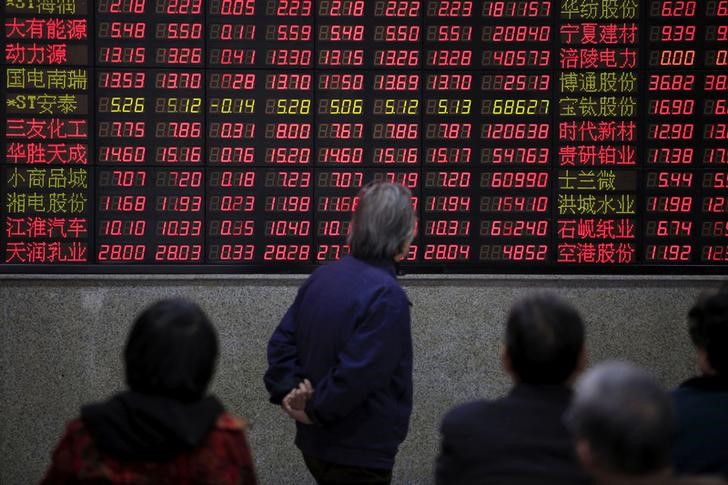SHANGHAI (Reuters) - China's securities regulator on Friday published draft rules that would restrict borrowing using stocks as collateral, part of efforts to reduce leverage in the financial system and ward off systemic risks.
The draft rules on the so-called stock pledged repurchase business, published by the Shanghai and Shenzhen stock exchanges, will curb leverage and are aimed at reducing risk in the event of a sharp decline in stock prices.
The value of shares that shareholders have pledged as collateral to borrow money, mainly from brokerages, has quadrupled over two years to more than 6 trillion yuan ($898 billion), or a tenth of the total value of China's stock market, according to estimates from Bank of America Merrill Lynch (NYSE:BAC) and BOCOM International.
To reduce risks of a vicious cycle - a sharp fall in stock prices could trigger margin calls and forced selling, thus sending shares even lower - the money an investor borrows cannot exceed 60 percent of the value of the pledged shares, according to the draft rules.
And to make sure borrowed money is invested in the real economy, rather than into stocks or other unproductive assets, initial borrowing must not be lower than 5 million yuan, according to the rules.

The rules only apply to new transactions, to reduce the impact on existing businesses.